TU Non-core Plant health 2.0: a global war.
Spying on the enemy
On November 23, Prof. Diana Fernandez showed us the life stages of a microscopic being that is damaging agriculture worldwide, starting with rice cultivation. Nematodes are parasitic worms that settle in plant roots and can cause the loss of around 20 to 30% of production. It is therefore important to identify resistant plant varieties to reduce their impact.
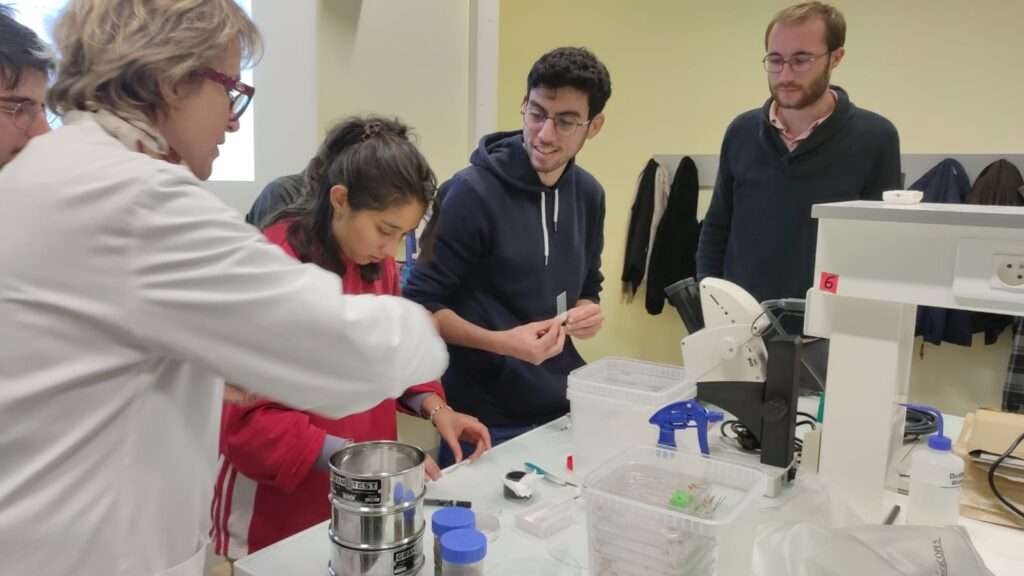
We had the opportunity to study the behavior of these worms in susceptible and resistant rice, as well as in papaya, by observing root sections under the microscope. We appreciated the intense purple and pink colors that formed microscopic works of art. We then drew them, identifying the whole of what we observed.
We've learned that when varieties are susceptible, the nematodes grow by feeding on giant cells; when they're resistant, the plant prevents the nematodes from entering and feeding by destroying the giant cells (see photos below). It's also worth noting that environmental conditions determine the sex of these worms: in the right conditions, the parasite produces only females, to promote highly efficient asexual reproduction by parthenogenesis.
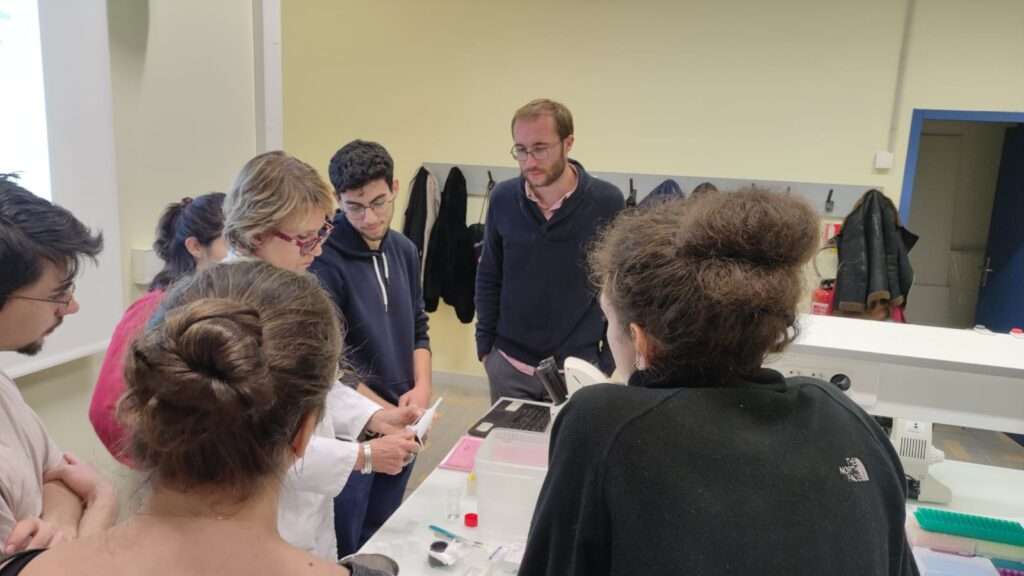
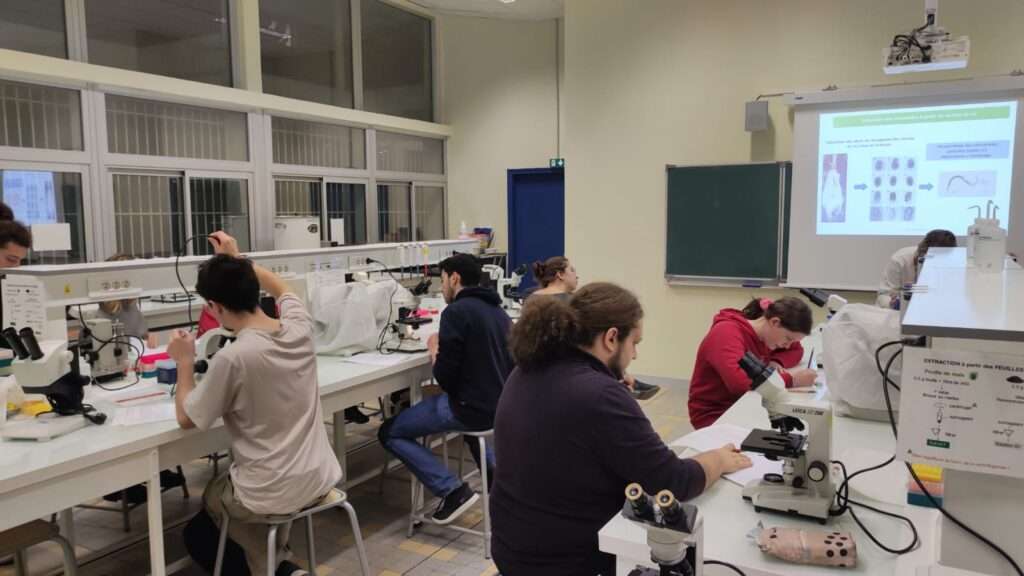
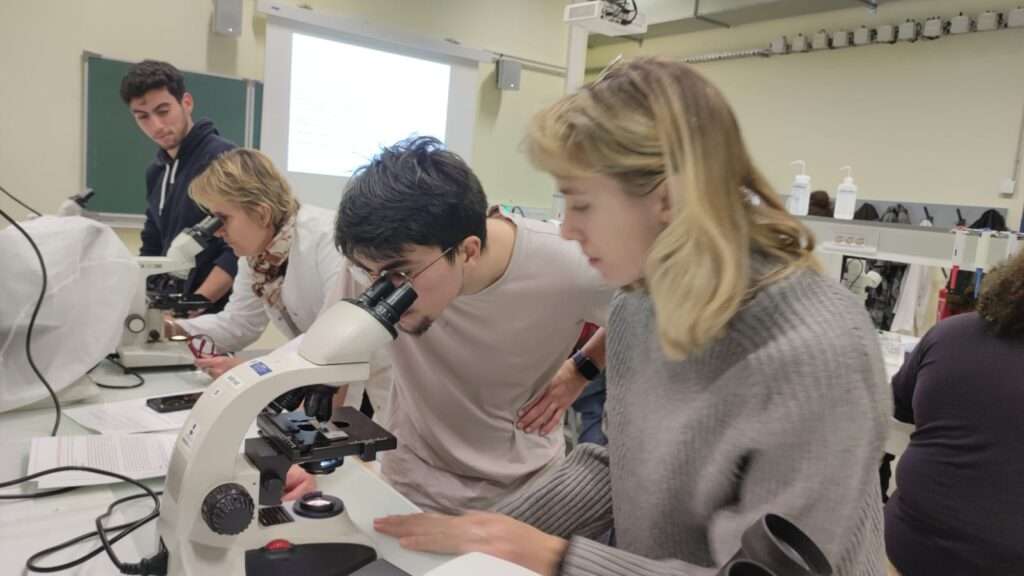
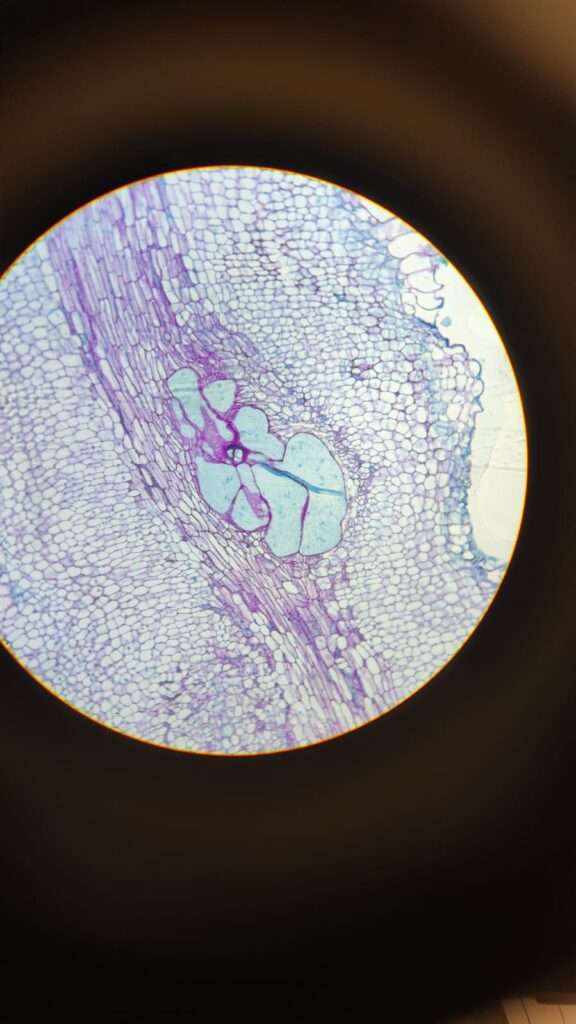
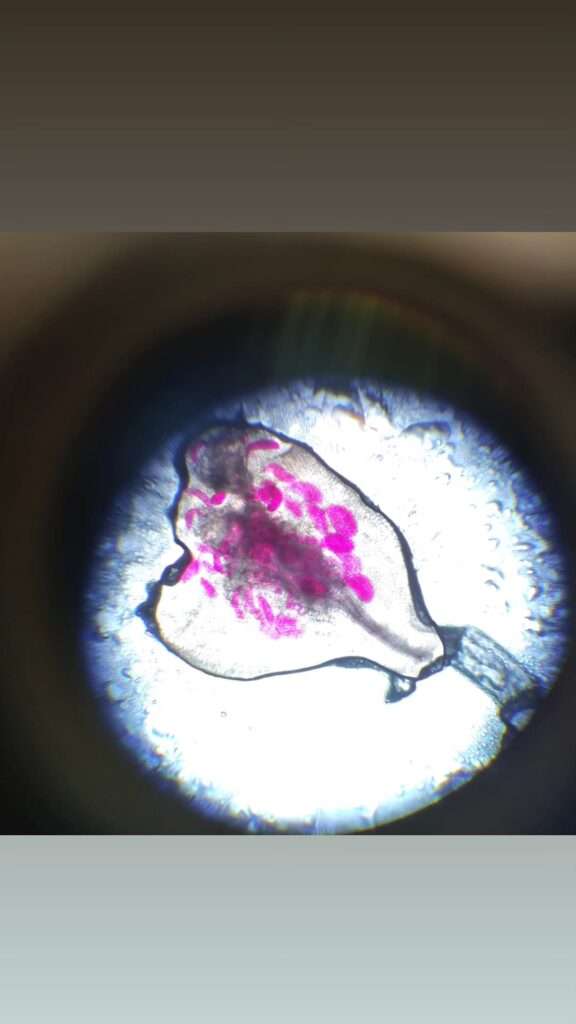
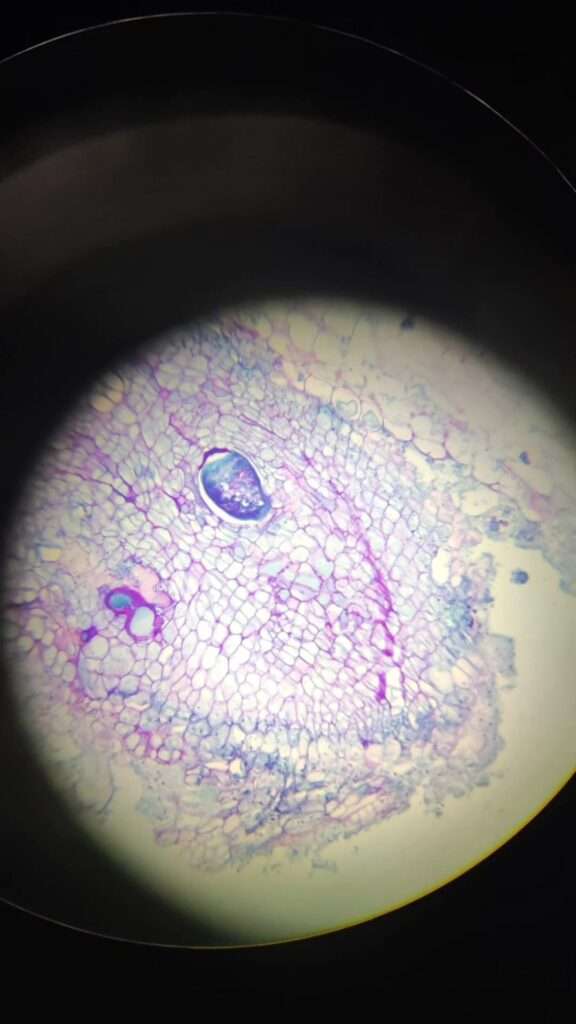
What is a Non-Core teaching unit?
This is an introductory course to a new discipline, enabling our students to develop multidisciplinary knowledge designed to encourage critical thinking and the scientific approach.
For more information, click on Program customization.